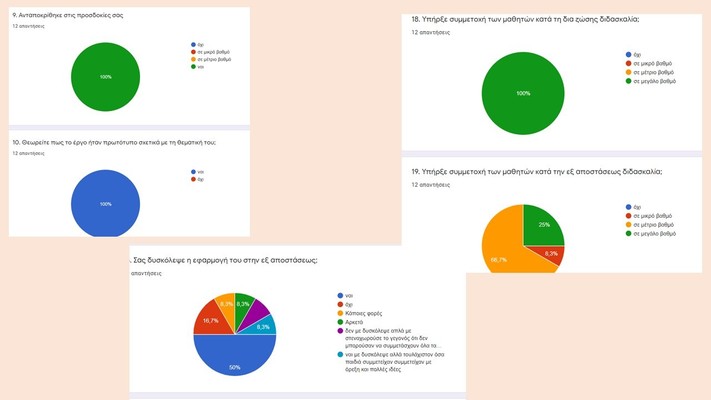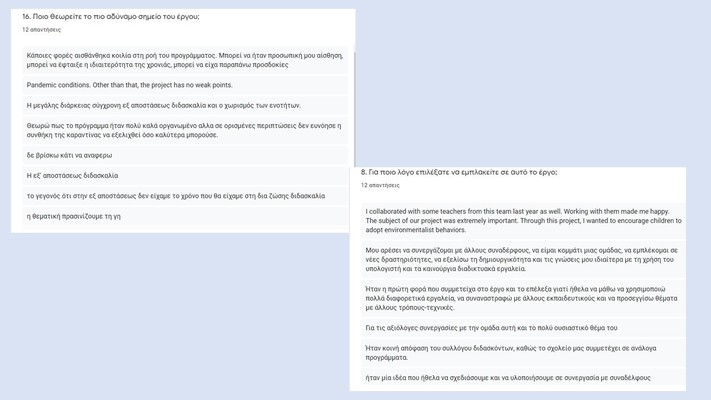
The evaluation from the point of view of the teachers is a feedback mechanism, a precondition for improving the quality of his work. It also enhances self-awareness and support for their professional development as well as the formation of an evaluation culture in the school community.
Greek Version
English
Teachers' evaluation of the eTwinning Project
At the conclusion of our programme this year, participating teachers were asked to evaluate both the programme and their overall experience of it.
By analyzing the statistics provided by the Google form questionnaire, we were led to the following conclusions. The majority of the 12 teachers were between the ages of 45-54, but there were younger teachers. In the field of studies, half of them had a Master's degree, half of them had a University degree. Most kindergarten teachers did not have a position of responsibility, but there were 41% who did. The expectations of the project as reflected were cooperation, knowledge and awareness of children on environmental problems. The reasons for choosing to get involved with this program mainly were, once again, cooperation, the topic of the program, the unanimous decision of the teachers' association. It was universally answered that the project met the expectations of the teachers involved, also overall they agreed on the originality of the project, its pedagogical value in relation to the age of the children it was designed for. The biggest difficulty in the implementation of the project was according to most of them the distance teaching due to the pandemic and some mentioned the coordination of such a large group since methodicalness was necessary. However, the organisation with a good attitude and cooperation helped to overcome these difficulties. In a subsequent question regarding the difficulty of implementation in distance education half of the teachers found it difficult, and the remaining answers were divided between no, quite a lot, sometimes. When asked to describe what exactly they found difficult, distance learning, the difficulty of some topics, the lack of children's participation, the implementation time, the eTwinning platform were again mentioned. The strongest point of the project was once again the collaborative actions. Concerning the weakest point of the project, some individual themes were mentioned that made it difficult for the team as the concepts were demanding, the distance learning, the many actions and some were not difficult. The answers given to the question "What would you change if you implemented it again" some answered nothing because they consider it complete, some would like to try it a lot in the classroom. The participation of the students in the face-to-face was high while in the distance mode the majority answered moderate. All participating teachers had a very good understanding of the design, structure, implementation and coordination of the programme. Any difficulties encountered, which are very understandable, were resolved through excellent cooperation, mutual support and assistance among the team members.

